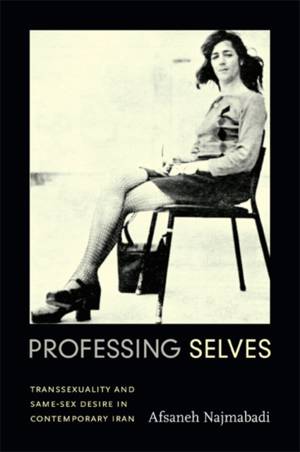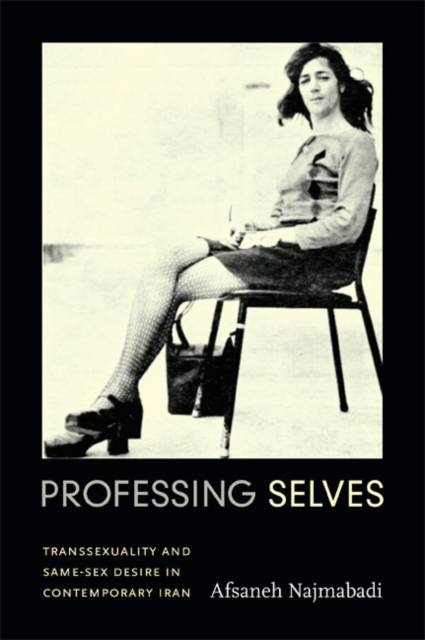
- Afhalen na 1 uur in een winkel met voorraad
- Gratis thuislevering in België vanaf € 30
- Ruim aanbod met 7 miljoen producten
- Afhalen na 1 uur in een winkel met voorraad
- Gratis thuislevering in België vanaf € 30
- Ruim aanbod met 7 miljoen producten
Zoeken
€ 51,45
+ 102 punten
Uitvoering
Omschrijving
Since the mid-1980s, the Islamic Republic of Iran has permitted, and partially subsidized, sex reassignment surgery. In Professing Selves, Afsaneh Najmabadi explores the meaning of transsexuality in contemporary Iran. Combining historical and ethnographic research, she describes how, in the postrevolutionary era, the domains of law, psychology and psychiatry, Islamic jurisprudence, and biomedicine became invested in distinguishing between the acceptable "true" transsexual and other categories of identification, notably the "true" homosexual, an unacceptable category of existence in Iran. Najmabadi argues that this collaboration among medical authorities, specialized clerics, and state officials-which made transsexuality a legally tolerated, if not exactly celebrated, category of being-grew out of Iran's particular experience of Islamicized modernity. Paradoxically, state regulation has produced new spaces for non-normative living in Iran, since determining who is genuinely "trans" depends largely on the stories that people choose to tell, on the selves that they profess.
Specificaties
Betrokkenen
- Auteur(s):
- Uitgeverij:
Inhoud
- Aantal bladzijden:
- 432
- Taal:
- Engels
- Reeks:
Eigenschappen
- Productcode (EAN):
- 9780822355571
- Verschijningsdatum:
- 16/12/2013
- Uitvoering:
- Paperback
- Formaat:
- Trade paperback (VS)
- Afmetingen:
- 152 mm x 229 mm
- Gewicht:
- 589 g

Alleen bij Standaard Boekhandel
+ 102 punten op je klantenkaart van Standaard Boekhandel
Beoordelingen
We publiceren alleen reviews die voldoen aan de voorwaarden voor reviews. Bekijk onze voorwaarden voor reviews.











